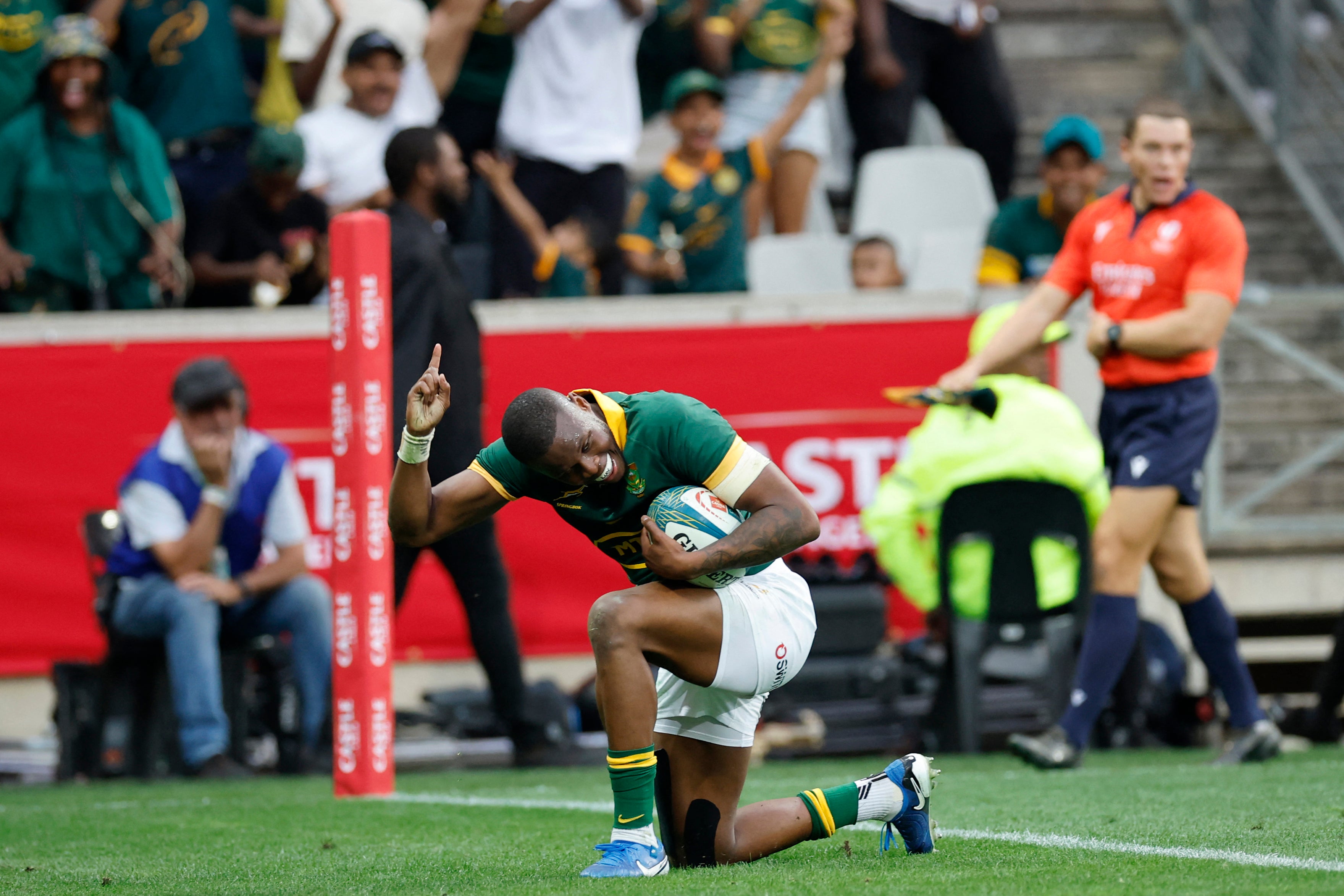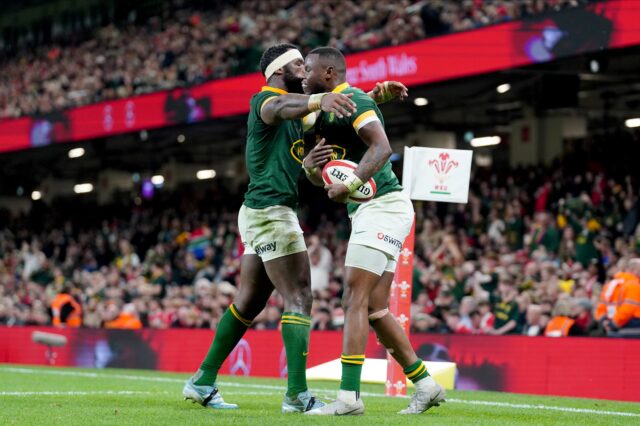Your support helps us to tell the story
From reproductive rights to climate change to Big Tech, The Independent is on the ground when the story is developing. Whether it’s investigating the financials of Elon Musk’s pro-Trump PAC or producing our latest documentary, ‘The A Word’, which shines a light on the American women fighting for reproductive rights, we know how important it is to parse out the facts from the messaging.
At such a critical moment in US history, we need reporters on the ground. Your donation allows us to keep sending journalists to speak to both sides of the story.
The Independent is trusted by Americans across the entire political spectrum. And unlike many other quality news outlets, we choose not to lock Americans out of our reporting and analysis with paywalls. We believe quality journalism should be available to everyone, paid for by those who can afford it.
Your support makes all the difference.
Even in a year that has contained so many Springboks success stories, one tale stands out. At the start of 2024, few would have forecast that Aphelele Fassi would have figured quite so prominently in South Africa’s evolution. Yet come the close of a season in which the full-back went undefeated at international level, Fassi has a place of relative permanence in the Springboks backfield.
Talk about seizing one’s opportunity. It looked for a time as if Fassi would be a case of unfulfilled potential, his first taste of Test level in 2021 brief. Nearly three years out of the side followed as injuries struck, with Fassi only able to watch on as Rassie Erasmus’s side built in his absence to another glorious World Cup crescendo. But good things come to those who wait.
“It was quite a surprise when I got back,” Fassi admits as he reflects on his return. “I’ve tried to enjoy each and every moment while I’m with the back-to-back champions. I want to learn from them.”
An international recall only came about thanks to some tough conversations that left Fassi questioning if he was cut out for the highest level. In his first stint with the Springboks, Fassi lacked the defensive and controlling qualities that South Africa demand of their full-backs; a free electron outside of the strong nucleus driving their dominance. Physically, he was found wanting, too. “He took a little bit of a beating,” Erasmus remembered recently of the young full-back’s bruising first spell in the side.
But the honesty of coaches like Mzwandile Stick, and guidance from Siya Kolisi, restored Fassi’s faith in his game and forced him to work hard to improve. “At the time, I was quite young. I had honest chats with the coaching staff about my physicality and my defence. You need those honest chats to build you as a player and a person.

“The guys were really welcoming when I came back. I’ve tried to improve my game and be a team player in whatever different way I had to.”
Like Kolisi, Fassi is from the Eastern Cape; born in King William’s Town, he attended Dale College, which counts pioneering South Africa Test cricketer Makhaya Ntini among its alumni. A standout performance at a schools festival in 2016 put Fassi on the radar of the Sharks, earning a bursary into an academy.
But the thought that a South Africa shirt might someday be within reach did not come until later. “Having that ambition to play for the Springboks probably didn’t start until I was playing professionally,” the 26-year-old recalls. “I’m a guy that doesn’t like to dream too big – I just focus on what I have to do.”

It is not a Springbok, though, that the full-back picks out as an inspiration, but former New Zealand star Israel Dagg, whose penchant for a goose step Fassi rath. Like Dagg, Fassi is an intuitive attacking thinker who has helped South Africa unlock another layer in attack, regularly sparking his side into action in the broken field.
“I think rugby has evolved,” he stresses. “You don’t want to be a team that is predictable. That’s what we’ve tried to evolve, being able to attack more. It’s not us shying away from our power game, it’s just wanting to evolve our game.
“There is healthy competition in this team. It’s a team that wants to help each other and get the best out of each other, but I’m just trying to be myself. I hold myself to my own standards.

“At Test level, you get four opportunities in a game. If you don’t convert them, you won’t get another opportunity. It has taught me to be clinical in the opportunities you get. The intensity and physicality are top level.”
The Springboks’ year may be over but there is no time for Fassi and his club colleagues to rest on their laurels. South African players based at the nation’s four United Rugby Championship (URC) sides have it tough, balancing a northern hemisphere club schedule with a southern hemisphere international itinerary.
The Sharks begin their Champions Cup campaign against Exeter on Saturday in fine, frightening fettle. The return of Kolisi to Durban further bolsters a squad blessed with frankly staggering strength: if the power of Ox Nche, Eben Etzebeth and Andre Esterhuizen doesn’t pierce you, the potency of Fassi, Grant Williams and Makazole Mapimpi surely will. It is a shiver of Sharks to leave rivals quivering; the Challenge Cup holders will rather fancy upgrading their silverware this season.

The South African sides remain an unnatural fit in a European competition and will have to contend with the logistical issues that have thus far capped their Champions Cup ambitions. Ensuring appropriate rest for their Springboks stars after a gruelling 14-Test year will also come into consideration.
But Fassi is desperate to be involved as much as possible after his breakthrough year. “Time off is crucial for your mental health and your body. If you spend all of your time in rugby, that’s where you are going to be fixated. Taking a break is very needed in our sport, and with our clubs we do get some rest during the season. But it depends where your goals are and how things are happening. Coming off of back-to-back injuries in 2022 and 2023, I just want to play as much rugby as I can.”






